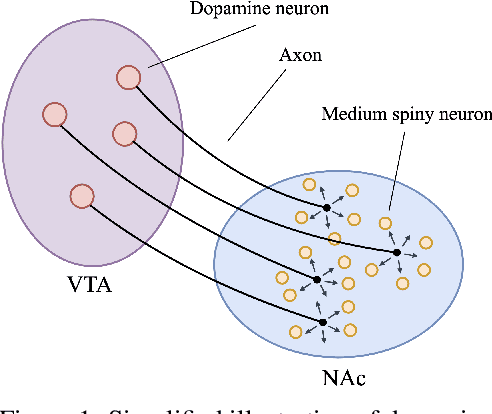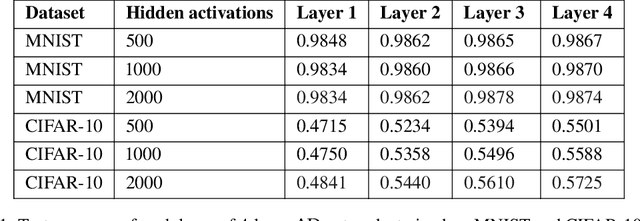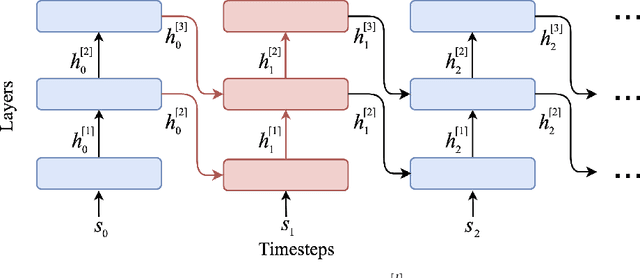William A. Cunningham
Persona Generators: Generating Diverse Synthetic Personas at Scale
Feb 03, 2026Abstract:Evaluating AI systems that interact with humans requires understanding their behavior across diverse user populations, but collecting representative human data is often expensive or infeasible, particularly for novel technologies or hypothetical future scenarios. Recent work in Generative Agent-Based Modeling has shown that large language models can simulate human-like synthetic personas with high fidelity, accurately reproducing the beliefs and behaviors of specific individuals. However, most approaches require detailed data about target populations and often prioritize density matching (replicating what is most probable) rather than support coverage (spanning what is possible), leaving long-tail behaviors underexplored. We introduce Persona Generators, functions that can produce diverse synthetic populations tailored to arbitrary contexts. We apply an iterative improvement loop based on AlphaEvolve, using large language models as mutation operators to refine our Persona Generator code over hundreds of iterations. The optimization process produces lightweight Persona Generators that can automatically expand small descriptions into populations of diverse synthetic personas that maximize coverage of opinions and preferences along relevant diversity axes. We demonstrate that evolved generators substantially outperform existing baselines across six diversity metrics on held-out contexts, producing populations that span rare trait combinations difficult to achieve in standard LLM outputs.
A Pragmatic View of AI Personhood
Oct 30, 2025Abstract:The emergence of agentic Artificial Intelligence (AI) is set to trigger a "Cambrian explosion" of new kinds of personhood. This paper proposes a pragmatic framework for navigating this diversification by treating personhood not as a metaphysical property to be discovered, but as a flexible bundle of obligations (rights and responsibilities) that societies confer upon entities for a variety of reasons, especially to solve concrete governance problems. We argue that this traditional bundle can be unbundled, creating bespoke solutions for different contexts. This will allow for the creation of practical tools -- such as facilitating AI contracting by creating a target "individual" that can be sanctioned -- without needing to resolve intractable debates about an AI's consciousness or rationality. We explore how individuals fit in to social roles and discuss the use of decentralized digital identity technology, examining both "personhood as a problem", where design choices can create "dark patterns" that exploit human social heuristics, and "personhood as a solution", where conferring a bundle of obligations is necessary to ensure accountability or prevent conflict. By rejecting foundationalist quests for a single, essential definition of personhood, this paper offers a more pragmatic and flexible way to think about integrating AI agents into our society.
Societal and technological progress as sewing an ever-growing, ever-changing, patchy, and polychrome quilt
May 08, 2025Abstract:Artificial Intelligence (AI) systems are increasingly placed in positions where their decisions have real consequences, e.g., moderating online spaces, conducting research, and advising on policy. Ensuring they operate in a safe and ethically acceptable fashion is thus critical. However, most solutions have been a form of one-size-fits-all "alignment". We are worried that such systems, which overlook enduring moral diversity, will spark resistance, erode trust, and destabilize our institutions. This paper traces the underlying problem to an often-unstated Axiom of Rational Convergence: the idea that under ideal conditions, rational agents will converge in the limit of conversation on a single ethics. Treating that premise as both optional and doubtful, we propose what we call the appropriateness framework: an alternative approach grounded in conflict theory, cultural evolution, multi-agent systems, and institutional economics. The appropriateness framework treats persistent disagreement as the normal case and designs for it by applying four principles: (1) contextual grounding, (2) community customization, (3) continual adaptation, and (4) polycentric governance. We argue here that adopting these design principles is a good way to shift the main alignment metaphor from moral unification to a more productive metaphor of conflict management, and that taking this step is both desirable and urgent.
A theory of appropriateness with applications to generative artificial intelligence
Dec 26, 2024

Abstract:What is appropriateness? Humans navigate a multi-scale mosaic of interlocking notions of what is appropriate for different situations. We act one way with our friends, another with our family, and yet another in the office. Likewise for AI, appropriate behavior for a comedy-writing assistant is not the same as appropriate behavior for a customer-service representative. What determines which actions are appropriate in which contexts? And what causes these standards to change over time? Since all judgments of AI appropriateness are ultimately made by humans, we need to understand how appropriateness guides human decision making in order to properly evaluate AI decision making and improve it. This paper presents a theory of appropriateness: how it functions in human society, how it may be implemented in the brain, and what it means for responsible deployment of generative AI technology.
Temporal-Difference Learning Using Distributed Error Signals
Nov 06, 2024



Abstract:A computational problem in biological reward-based learning is how credit assignment is performed in the nucleus accumbens (NAc). Much research suggests that NAc dopamine encodes temporal-difference (TD) errors for learning value predictions. However, dopamine is synchronously distributed in regionally homogeneous concentrations, which does not support explicit credit assignment (like used by backpropagation). It is unclear whether distributed errors alone are sufficient for synapses to make coordinated updates to learn complex, nonlinear reward-based learning tasks. We design a new deep Q-learning algorithm, Artificial Dopamine, to computationally demonstrate that synchronously distributed, per-layer TD errors may be sufficient to learn surprisingly complex RL tasks. We empirically evaluate our algorithm on MinAtar, the DeepMind Control Suite, and classic control tasks, and show it often achieves comparable performance to deep RL algorithms that use backpropagation.
Generative agent-based modeling with actions grounded in physical, social, or digital space using Concordia
Dec 13, 2023



Abstract:Agent-based modeling has been around for decades, and applied widely across the social and natural sciences. The scope of this research method is now poised to grow dramatically as it absorbs the new affordances provided by Large Language Models (LLM)s. Generative Agent-Based Models (GABM) are not just classic Agent-Based Models (ABM)s where the agents talk to one another. Rather, GABMs are constructed using an LLM to apply common sense to situations, act "reasonably", recall common semantic knowledge, produce API calls to control digital technologies like apps, and communicate both within the simulation and to researchers viewing it from the outside. Here we present Concordia, a library to facilitate constructing and working with GABMs. Concordia makes it easy to construct language-mediated simulations of physically- or digitally-grounded environments. Concordia agents produce their behavior using a flexible component system which mediates between two fundamental operations: LLM calls and associative memory retrieval. A special agent called the Game Master (GM), which was inspired by tabletop role-playing games, is responsible for simulating the environment where the agents interact. Agents take actions by describing what they want to do in natural language. The GM then translates their actions into appropriate implementations. In a simulated physical world, the GM checks the physical plausibility of agent actions and describes their effects. In digital environments simulating technologies such as apps and services, the GM may handle API calls to integrate with external tools such as general AI assistants (e.g., Bard, ChatGPT), and digital apps (e.g., Calendar, Email, Search, etc.). Concordia was designed to support a wide array of applications both in scientific research and for evaluating performance of real digital services by simulating users and/or generating synthetic data.
 Add to Chrome
Add to Chrome Add to Firefox
Add to Firefox Add to Edge
Add to Edge